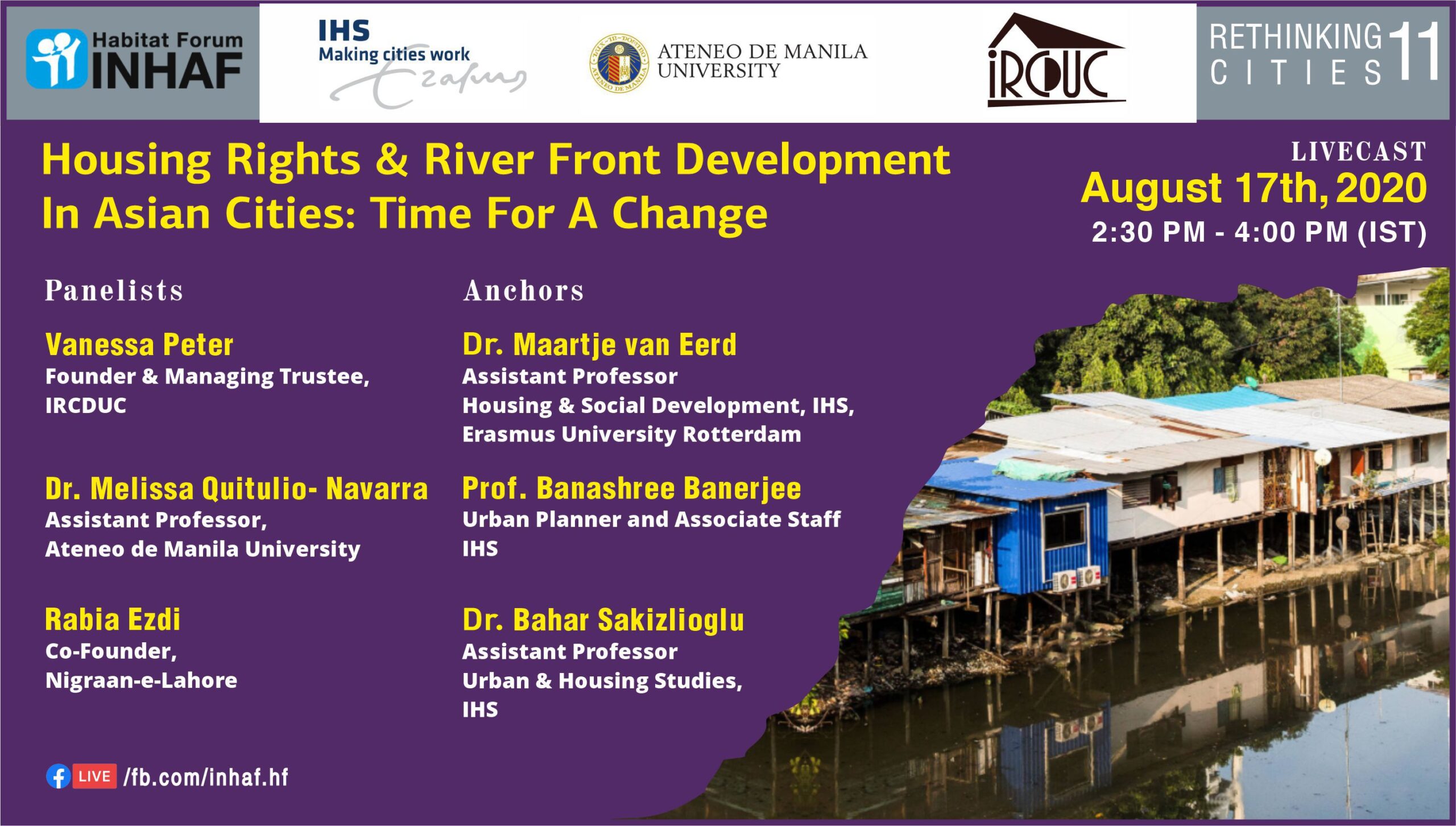
Local Time
- Timezone: America/New_York
- Date: Aug 17 2020
Housing rights and river front development in Asian cities: Time for a change
The current pandemic has very sharply brought to the forefront the interconnectedness of housing, health and sanitation, food security and livelihoods. It also vividly shows the scale of the challenge with respect to the number of people living in precarious situations worldwide. Those living in informal settlements and under-serviced isolated resettlement sites, in totally inadequate housing, many of whom depend on informal labor who have lost all sources of livelihoods due to the lock down, the huge number of homeless, whose numbers are increasing as evictions are even continuing during the lock-down (Gokhale & Chari Article 14). This crisis forces us to rethink our development model and our ways of meeting the urban challenges. Kirtee Shah writes “this crisis gives us the opportunity to rethink the way we live, produce, consume, interact transact, move, grow and develop” (ACHR E-News 2020). So, what does this mean for the field of housing, and how should we move from here after this pandemic is under control? In this webinar we will zoom into the current river front development projects in Asia and the lessons that can be drawn with respect to the impact on low income communities, who are often paying the price for this type of ‘development’. Can we continue to move the urban poor out to far of and isolated places where they are rehoused in huge settlements, in high-rise apartment blocks lacking access to services, schools, hospitals and most importantly employment. Settlements that are in violation with the right to adequate housing, that pose a threat to health and livelihoods. Is it time to rethink this model? Questions that we would like to address in this webinar are:
1. What lessons can be learned from current river front development projects and its impact on housing for low-income communities?
2. What needs to change after the pandemic with regards to realizing the right to adequate housing for communities affected by river front development?
